Every June, Men's Mental Health Month highlights the emotional challenges men face globally. High male suicide rates and untreated mental health issues are serious problems. Yet, this important awareness period gets little attention. Many can list health awareness campaigns, but few remember Men's Mental Health Month.
Brief Overview of Men's Mental Health Month
Men's Mental Health Month aims to raise awareness about mental health issues affecting men. The observance aims to reduce stigma for men seeking help. It also educates communities about male-specific symptoms. The goal is to promote early intervention. We also want to make mental health resources more accessible for men.
Why Awareness Matters for Men's Well-Being
The statistics paint a picture. Men account for approximately 75 percent of suicide deaths in many countries. One in eight men will experience depression, yet most never seek treatment. Men are three to four times less likely than women to seek mental health services. This is true even when they show serious symptoms that impact their daily lives.
This isn't about numbers. These statistics show real people in pain. Families struggle to understand behavior changes. Relationships suffer from untreated illness. Some lives end tragically because asking for help seems too hard.
The Importance of Discussing Emotional Health Openly
To raise awareness for men's mental health, we need open talks about the barriers they face. Cultural views on masculinity, fear of judgment, and a lack of education about symptoms all contribute to a crisis. Inadequate healthcare outreach also plays a role. This issue persists even as awareness of mental health grows.
Ignoring men's mental health tells them their emotional struggles don't matter. This silence costs lives, destroys families, and perpetuates harmful patterns for future generations. To create real change, first understand why people ignore this awareness month.
Understanding Men's Mental Health
Mental health impacts everyone, but men have unique challenges. Their conditions show in different ways. How others see them varies. Their methods of seeking help can also differ.
Depression
Male depression often appears different from female depression. This can result in missed diagnoses and delayed treatment. Women frequently show sadness and tears. In contrast, men with depression usually display irritability, anger, and aggression.
A depressed man may look annoyed all the time. He might snap at family members over little things. He could act recklessly rather than appear sad or withdrawn. This difference means that people around him, like healthcare providers, might not see these symptoms as signs of depression.
Physical complaints frequently mask male depression. Men often report issues to doctors. These can include fatigue, digestion problems, chronic pain, or sleep troubles. But they tend to deny emotional symptoms. Focusing on physical symptoms may result in many tests. This approach often overlooks important mental health issues.
Anxiety
Anxiety in men often appears as stress at work, pressure to deliver, and physical signs. This is different from the typical worry seen in anxiety disorders. Men may become workaholics or perfectionists. They might also develop stress-related health issues. Often, they don’t see anxiety as the main cause.
Social anxiety in men often manifests through silence or a lack of friendliness. It is misunderstood and not seen as a real anxiety disorder. This misunderstanding stops men from receiving the right treatment. They continue to face challenges in social and work situations.
Stress
Chronic stress from societal pressures can harm men's mental health. They confront expectations of financial stability, emotional strength, and self-reliance. This constant pressure can lead to serious mental health issues. Over the years, this pressure builds. It wears down resilience and raises the risk of serious mental health issues.
Men often face tough jobs and family duties. They feel they can't show stress. This can create difficult situations. Asking for help can feel like a failure. This pressure-cooker environment plays a major role in the male mental health crisis.
Statistics and Data on Men's Mental Health Globally
The National Institute of Mental Health says men die by suicide three to four times more than women. However, women attempt suicide more often. Men often use more lethal methods and usually don’t seek help before a crisis.
Middle-aged men have a high risk of suicide—the rates peak between ages 45 and 64. Veterans experience even higher rates. Substance abuse impacts about two-thirds of those with addiction. Most are men. They often use substances to self-medicate for untreated mental health issues.
How Stigma and Social Expectations Affect Men Differently
Boys learn early that crying is weak. They hear that emotions should stay hidden. Real men, they’re told, solve problems on their own. These messages stick with men. They shape how they see themselves and their struggles in life.
The strong, silent type exists in many cultures. It views emotional expression as feminine and unsuitable for men. Men who step outside these norms face ridicule. People may question their masculinity, and they might face social sanctions. These pressures encourage them to keep their emotions hidden.
Toxic masculinity affects mental health. It creates cycles where men feel pressured to seem strong. This pressure often stops them from seeking help. As a result, problems can grow severe or even life-threatening.
What Is Men's Mental Health Month?
Understanding the history and purpose of this observance reveals its importance. This is also why it often goes unnoticed.
History and Purpose of Men's Mental Health Month
June is Men's Mental Health Month. It focuses on raising awareness about mental health issues that affect men. Mental health impacts everyone, but men encounter specific challenges. These challenges need focused education and resources.
The timing aligns with Men's Health Week, usually in mid-June. This creates opportunities to focus on all areas of men's wellness. This coordination acknowledges the link between physical and mental health. Both need attention.
When It's Observed and What It Aims to Promote
Every June, people celebrate Men's Mental Health Awareness Month. During this month, organizations, healthcare providers, and advocacy groups share education and resources. Some groups also call November Movember. They focus on men's physical and mental health through fundraising and awareness events.
The observance seeks to make it normal to talk about men's emotional struggles. It aims to reduce the stigma that stops men from seeking help. The goal is to educate communities on male-specific symptoms and warning signs. It also promotes early intervention and treatment. Finally, it connects men with the right resources and support services.
Despite years of observance, recognition remains limited compared to other health awareness campaigns. Many people struggle to recognize when it happens or what its goals are. This shows the problem that the awareness month seeks to tackle.
Why Is Men's Mental Health Month Often Ignored?
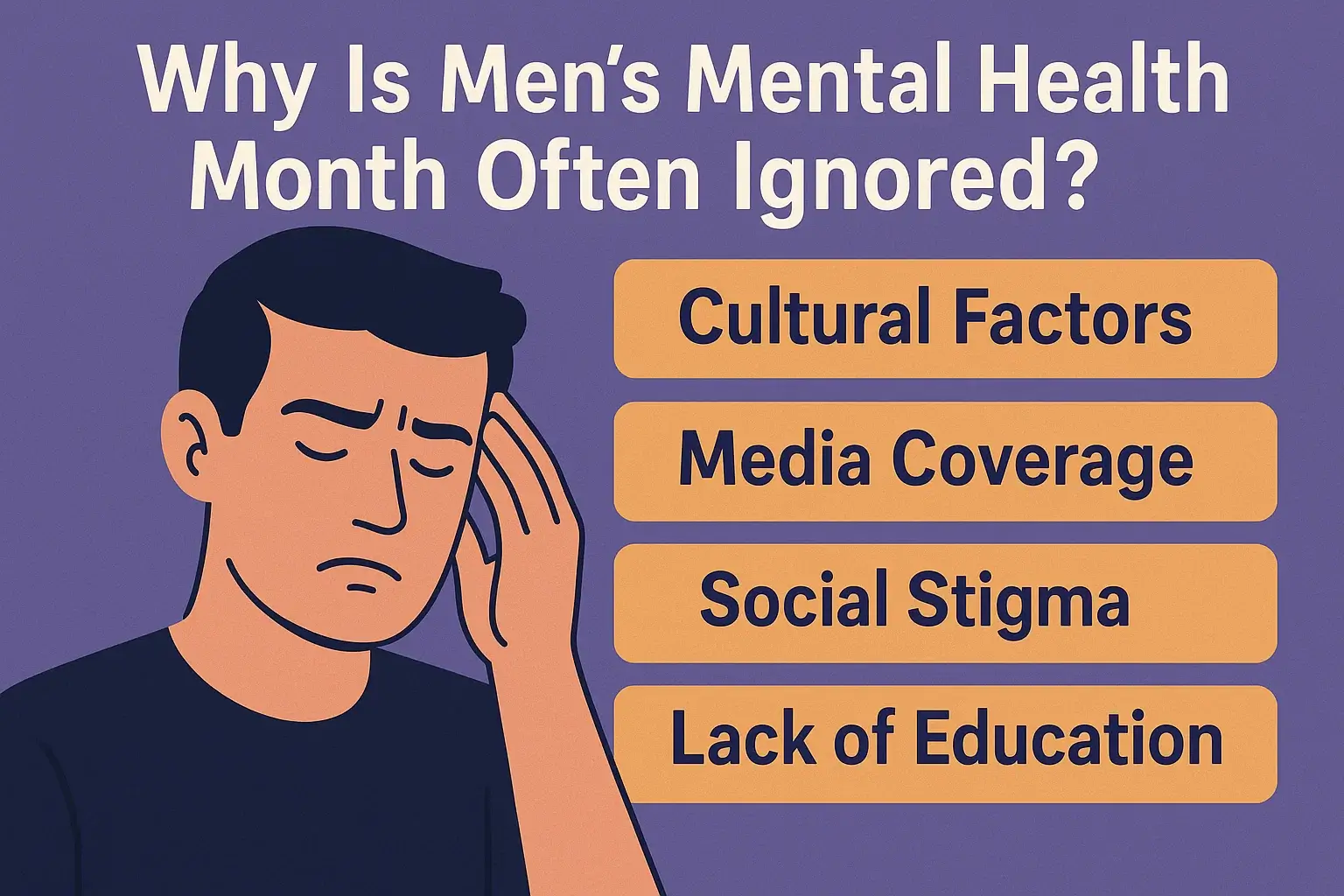
Many factors cause ongoing neglect of men's mental health needs. This happens despite growing awareness of mental health.
Cultural Factors: Societal Beliefs That "Men Should Be Strong"
Traditional masculinity norms create powerful barriers to men's mental health awareness. The idea that real men must be strong and stoic makes it hard to admit mental health struggles. Doing so can feel like a failure of masculinity.
These societal expectations that men face regarding mental health start early. Boys learn through countless interactions that expressing vulnerability invites teasing, punishment, or rejection. Many men hide their emotions as adults. This makes it hard for them to recognize their feelings. They often can’t express them either.
The idea that showing weakness is tied to emotional expression remains. But it ignores that admitting struggles and asking for help takes real courage. Changing these deep cultural patterns needs ongoing effort. Individuals, families, schools, workplaces, and communities must all take part.
Media Coverage: Limited Visibility and Underrepresentation
Mainstream media offers little coverage of the men’s mental health crisis. Other health topics get much more attention. Men's mental health often makes headlines after tragedies, like suicides or violence. It rarely highlights prevention, treatment, or support.
This reactive coverage fails to inform the public about warning signs and available resources. It also doesn’t show the prevalence of men’s struggles. Without regular, substantive coverage of normalizing men's mental health campaigns, stigma persists unchallenged.
The lack of famous men sharing their mental health stories makes it less visible. Some celebrities are speaking out. Still, men's mental health needs more support. Other causes have received much more advocacy.
Social Stigma: Fear of Being Judged or Seen as Weak
Men often hide their depression and anxiety. They worry that sharing their struggles will make them look weak, unstable, or incompetent. In the workplace, men fear that talking about mental health could harm their careers. They worry it could cost them promotions or even job security.
In social circles, men judge each other, causing worry among them. They fear that others will see their struggles as excuses or flaws in their character. This stigma about male emotional vulnerability stops men from reaching out to friends. These friends could offer understanding and support.
Dating concerns add another dimension. Men fear that discussing mental health issues will make them less attractive to partners. This worry can block them from forming genuine connections in relationships.
Lack of Education: Poor Understanding of Men's Emotional Struggles
Men often have undiagnosed mental health issues due to gaps in education. Many people don't recognize how these problems show up in men. This lack of awareness leads to missed diagnoses. Healthcare providers may overlook male-specific symptoms, such as irritability and risk-taking. These can be signs of depression.
Families and friends often can't identify struggles because symptoms don't match expectations. Anger, withdrawal, heavy drinking, and being a workaholic might not look like mental health issues. This can lead loved ones to miss chances to help.
Schools rarely provide full mental health education that addresses gender differences in symptoms and help-seeking. Without this education, communities remain ill-equipped to recognize and respond to men's needs.
Healthcare Bias: Fewer Screenings and Outreach Efforts Targeting Men
Men's routine healthcare visits often skip mental health screenings. This misses chances to spot problems early. Primary care providers often skip asking male patients about mood or stress. They think men won’t talk about these issues.
This absence in screening means that problems don't get early help. This can lead to serious issues later on. Once problems get serious enough to need help, they’re harder to treat.
Men often skip therapy due to insurance gaps and high costs. They see care as too pricey or not needed. Limited male-focused services create more obstacles.
The Consequences of Ignoring Men's Mental Health
Neglecting men's mental health can have serious effects. It impacts not only the individual but also many others around them.
Rise in Male Suicide Rates
The most tragic consequence appears in male suicide rates. Men die by suicide three to four times more than women. This happens even though doctors diagnose fewer men with depression. This shows how dangerous untreated illness and the stigma around seeking help can be.
Warning signs in men often get missed. Sudden behavior changes, risky actions, or feeling like a burden may not seem serious. They usually don’t fit the usual warning signs. This oversight costs lives through missed intervention opportunities.
Each suicide devastates families and communities. Children lose dads, partners lose spouses, and friends feel guilt for not seeing signs. These are preventable tragedies. They happen partly because society overlooks men's mental health.
Substance Abuse and Anger Issues
Men often self-medicate for depression and anxiety with alcohol or drugs. They attempt to numb the pain that confronts them. Addiction worsens existing issues and creates new challenges in relationships and jobs.
Treating addiction without addressing underlying mental health issues rarely achieves lasting success. Men need treatment for both problems at the same time, but this care is often hard to find.
Depression can show up as irritability and anger. This can cause fights in relationships, problems at work, and even legal issues. Ignoring anger as a sign of depression leads to intervention that targets behavior. This misses the deeper mental health needs.
Impact on Families, Relationships, and Workplaces
Untreated issues strain intimate relationships through emotional unavailability, irritability, and withdrawal. Partners often find it hard to understand behavior changes. They might see these changes as personal attacks. They may not realize they are signs of mental health issues.
Children with fathers struggling with untreated mental illness learn unhealthy emotional patterns. Boys often learn that men shouldn’t talk about feelings or ask for help. This idea continues in future generations.
Workplace productivity suffers from untreated mental health through absenteeism, conflicts, and reduced performance. Career stagnation and job loss cause financial stress. This stress makes symptoms worse and limits access to treatment.
Long-Term Effects of Untreated Mental Health Issues
Untreated chronic mental health issues can cause treatment-resistant conditions. They often lead to more severe episodes as time goes on, along with disability and a lower quality of life. Physical health deteriorates through connections between mental and physical wellness.
The economic burden covers lost productivity, healthcare costs from avoidable problems, and lower earning potential. Untreated male mental health leads to major economic costs for society.
Steps Toward Change
To tackle this crisis, we need teamwork at all levels. Individual actions and big changes in systems are both important.
Encouraging Open Dialogue and Breaking the Stigma
Talking about men's mental health begins with a willingness to share struggles. Men sharing recovery stories show that facing challenges is not a sign of weakness. Seeking help can lead to real improvement.
Safe spaces let men talk about emotions freely. This helps them be vulnerable without fear of judgment or ridicule. It also prevents their masculinity from being questioned. These might be friend groups, online communities, or structured support groups.
Redefining masculinity to include emotional awareness helps men see that knowing their needs is a strength. True strength includes knowing when you need help and having the courage to seek it.
Promoting Mental Health Education in Schools and Workplaces
Teaching boys emotional literacy early helps prevent suppression and later issues. Boys who learn to recognize and share their emotions gain skills that protect their mental health for life.
Programs for workplace mental health support for men use messages that resonate with male employees. Targeted initiatives recognize specific barriers men face. They offer male-friendly support pathways instead of generic programs that men might dismiss.
Raising awareness about men's mental health through community education and faith helps connect with them. It also integrates into places where men gather. This creates many opportunities to share important information.
Role of Governments, Healthcare Providers, and NGOs
Government funding for research, programs, and awareness shows our commitment to this crisis. Adequate funding enables specialized service development, provider training, and large-scale education efforts.
Healthcare providers implementing routine mental health screening ensure early problem identification. Training on male-specific signs helps doctors see that irritability and anger can signal depression. This reduces missed diagnoses.
NGOs and advocacy groups are vital. They offer direct services, conduct research, and push for policy changes. These efforts support men's mental health in communities and across the nation.
How Men Can Seek Help and Support Each Other
Recognizing when you need help represents the first step toward recovery.
Warning signs are:
- Persistent mood changes
- Trouble functioning
- Relationship issues
- Increased substance use
- Thoughts of self-harm
You can start by looking for primary care doctors. You might also check with your insurance company for covered providers. Community mental health centers offer support to everyone, regardless of their ability to pay.
Supporting other men helps build peer networks. Check in on friends, listen without judgment, and encourage professional help. Also, model healthy emotional expression. This reduces isolation and makes seeking help more normal.
How to Support Men's Mental Health Awareness
Individual actions come together to shift culture. They make men's mental health awareness normal, not taboo.
Spreading Awareness on Social Media and in Communities
Sharing accurate info about men's mental health on social media in June and throughout the year helps keep these issues visible. Using hashtags for men's mental health boosts visibility and links to larger movements.
Challenging jokes or comments about mental health show that these issues deserve respect. Even small interventions in conversations help shift cultural attitudes over time.
Organizing community events, starting support groups, or partnering with local organizations helps build resources and connections. Local initiatives meet the community's specific needs and circumstances.
Supporting Men's Mental Health Campaigns
Donating to organizations working on these issues funds vital services and advocacy. Small contributions can boost the reach and impact of groups that support men's mental health.
Joining awareness events, like walks and fundraisers, shows support. You also learn about important issues and resources. Participation also shows men who are struggling that communities care about their well-being.
Encouraging Friends, Partners, and Family Members to Talk
Recognizing male-specific symptoms helps partners and family know when someone needs help, even if that person doesn't say so. Depression might look like irritability rather than sadness.
Using compassion instead of criticism helps in conversations. Focus on specific behaviors you notice. Offer practical help, like finding providers. This creates a supportive environment for sharing, not a pressured one.
Sharing activities gives men a safe space to connect and open up. Listening without pressure allows them to share when they are ready.
Conclusion
Men's Mental Health Month often goes unnoticed. This happens because of cultural stigma, poor media coverage, lack of education, and healthcare barriers. The consequences are severe. They include high suicide rates, untreated addiction, broken relationships, and huge personal and societal costs.
Men deserve mental health support without stigma. Start conversations today. Check in on the men in your life. Challenge harmful stereotypes. Every action breaks down barriers and saves lives. At Gendrics, we provide comprehensive mental health education.
Dive in to learn more! Men's mental health matters. Break the silence. Seek help. Support others. Together, we create change.

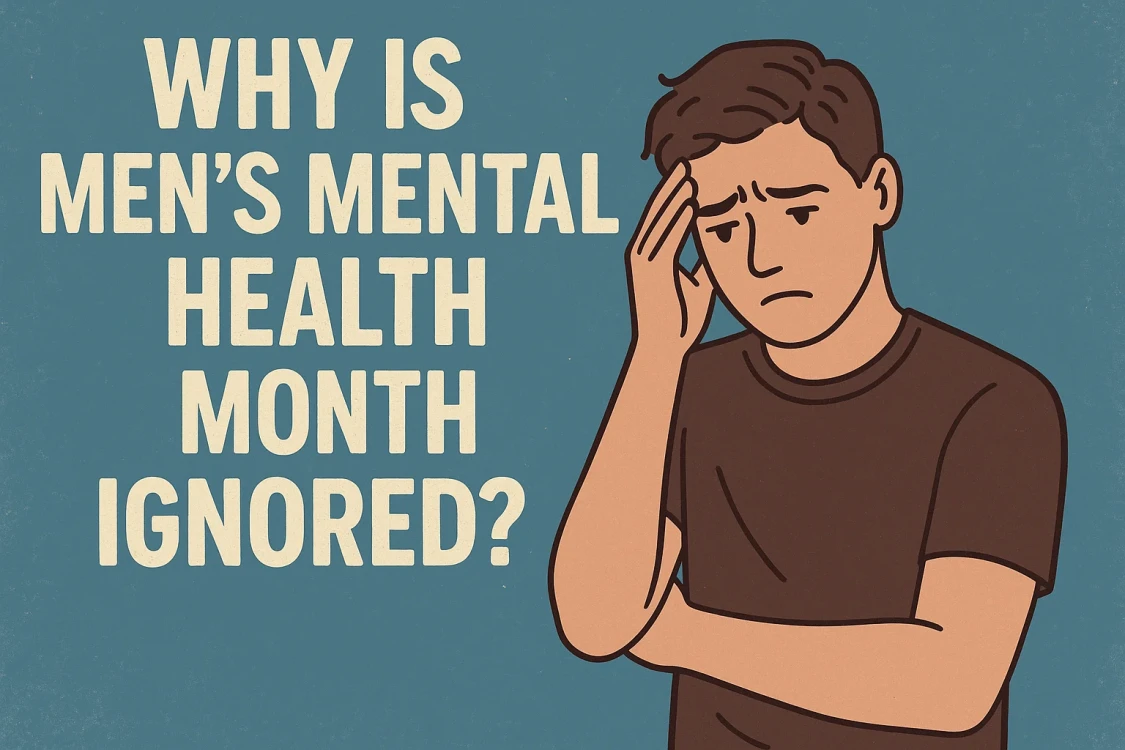

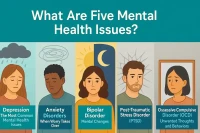
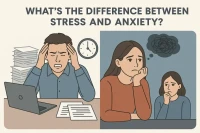
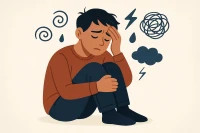
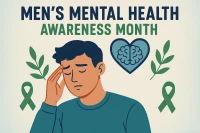


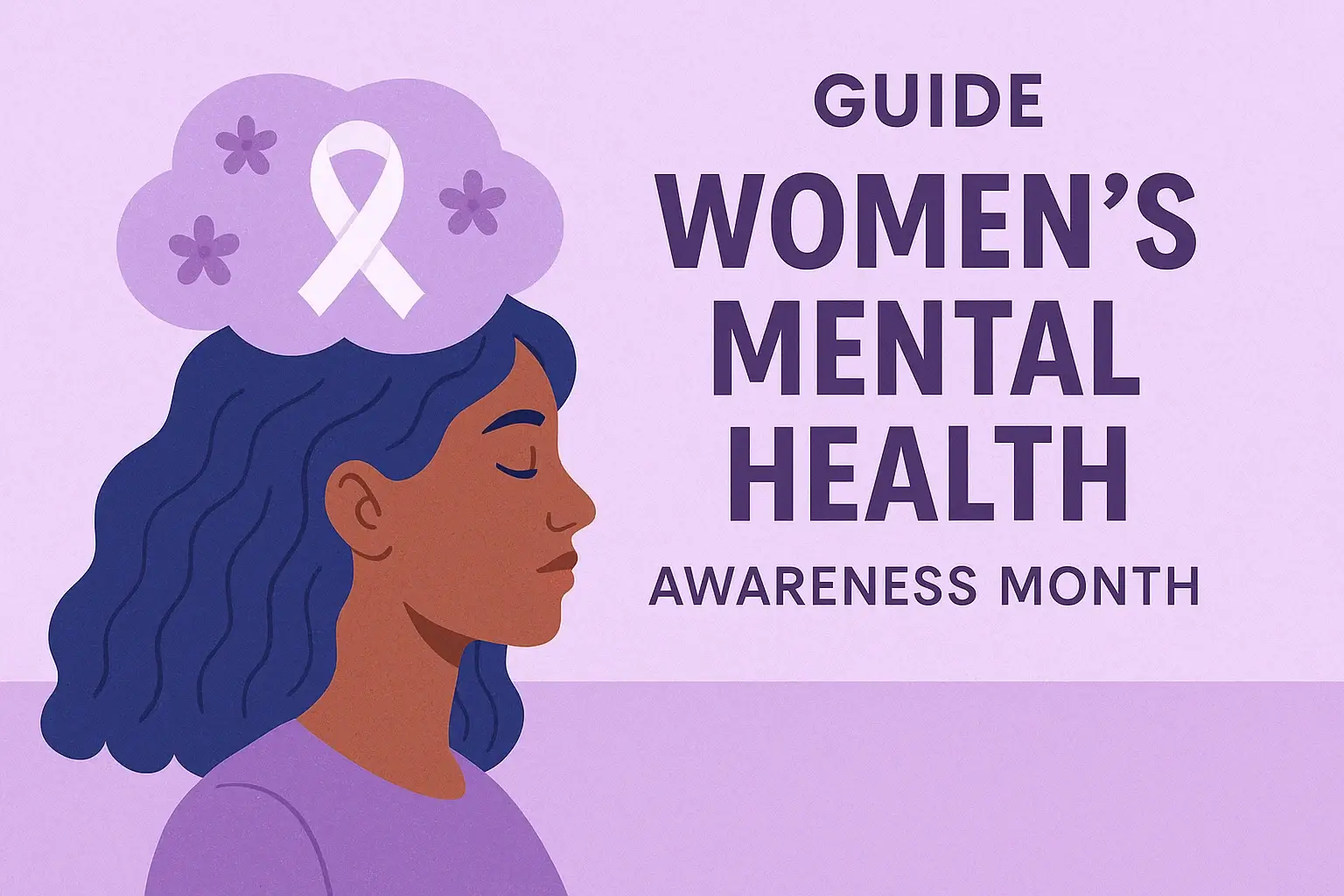
Comments